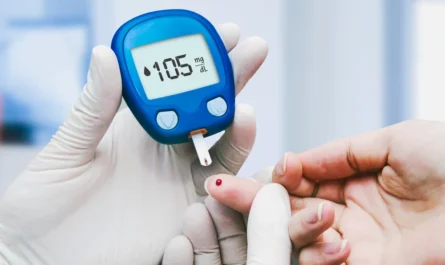A recent study published in the journal Nature Communications has shed light on the mechanisms through which Group A streptococcus (GAS) bacteria outsmart the immune system and cause severe infections. The researchers found that the heterogeneity of GAS infections and the transition from local to systemic infections are accompanied by alterations in the immunoglobulin G (IgG) homeostasis by the pathogen.
Group A streptococcus, also known as Streptococcus pyogenes, is responsible for causing a wide range of infections in humans. These infections can range from localized throat or skin infections, such as pharyngitis and impetigo, to life-threatening conditions like necrotizing fasciitis and sepsis. Additionally, GAS infections can lead to immune-mediated disorders such as acute rheumatic fever and glomerulonephritis. With approximately 18 million severe cases and 500,000 deaths reported annually, the severity and heterogeneity of GAS infections make them a significant public health concern.
The study focused on understanding the factors and mechanisms that contribute to the virulence of GAS. The researchers used a combination of animal models, glycoproteomic and proteomic analysis to investigate the changes in IgG homeostasis during GAS infections. Previous studies had already shown that deglycosylated IgG accumulates in the tissues and body fluids of individuals with GAS infections. The present study aimed to elucidate the underlying mechanisms through which this accumulation occurs.
By using mass spectrometry approaches, the researchers were able to determine site-specific differences in the IgG glycopeptide. They discovered that GAS bacteria can alter the structure and function of IgG to evade antibody-mediated immune responses. They achieve this by binding to the fragment crystallizable (Fc) region of IgG, preventing opsonization and phagocytosis of bacteria. GAS also secretes proteases that cleave and degrade IgG antibodies, as well as a glycan hydrolase called EndoS, which deglycosylates IgG.
The study found that the enzymatic degradation of IgG caused by GAS infections leads to the accumulation of cleaved IgG products in the plasma. The extent of IgG degradation depends on factors such as the route of infection and the activities of the bacterial protease IdeS and the endoglycosidase EndoS. These virulence factors play a crucial role in the transition from localized infections to systemic ones. Furthermore, the researchers discovered that bacterial virulence factors can also degrade exogenously administered IgG, impacting the efficacy of antibody-based therapies.
The findings of this study have important implications for the treatment of GAS infections. It highlights the need for preclinical evaluations of therapeutic antibodies before their administration, as bacterial virulence factors can degrade and modify the structure and function of exogenous IgG. This study also underscores the importance of conducting preclinical studies for other bacterial infections, especially those caused by pathogens that express similar proteases and endoglycosidases.
In conclusion, the study has provided valuable insights into how Group A streptococcus bacteria evade the immune system and cause severe infections. The findings emphasize the role of bacterial virulence factors in the pathogenesis of GAS infections and their potential impact on antibody-based therapies. By better understanding the mechanisms through which GAS bacteria outsmart the immune system, researchers can develop more effective strategies for the prevention and treatment of these infections.
*Note:
1. Source: Coherent Market Insights, Public sources, Desk research
2. We have leveraged AI tools to mine information and compile it



